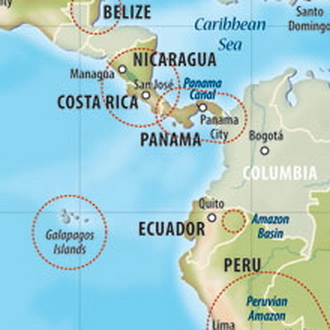We previously reported on the incident that led to the death of 16-year-old Fernando Osorio Rodriguez, who died at sea, five days after his drifting boat came in close contact with the Star Princess, ship operated by Princess Cruises, which failed to render aid to the boat in distress.
On June 5, 2012, as published in the Miami Herald, Leesfield & Partners sued Princess Cruises and filed its complaint on behalf of Fernando Osorio’s parents in the United States District Court Southern District of Florida.
The complaint is available here.
The lawsuit alleges that, on February 24, 2012, Fernando Osorio and two of his friends boarded the Fifty Cents, a 26-foot panga boat, which is a modest-sized, open, outboard-powered, fishing boat common through the region. The three friends intended to fish off the coast of Panama, but shortly after the group left from Rio Hato, the engine of the Fifty Cents died and the boat drifted out to sea.
 Fernando and his two friends drifted at sea for 15 days and 14 nights without power when on March 10, 2012, the Panga drifted within sight of a large white ship, the Star Princess, which is a luxury cruise ship with a passenger capacity of 2590 and a crew capacity of 1150. At the time the Fifty Cents was so far from shore that it was obvious that it was not fishing, but instead without power and adrift.
Fernando and his two friends drifted at sea for 15 days and 14 nights without power when on March 10, 2012, the Panga drifted within sight of a large white ship, the Star Princess, which is a luxury cruise ship with a passenger capacity of 2590 and a crew capacity of 1150. At the time the Fifty Cents was so far from shore that it was obvious that it was not fishing, but instead without power and adrift.
Upon seeing the large ship, the three companions repeatedly signaled that they were in distress and in need of rescue, waving their arms, waving a shirt tied to a pole and otherwise signaling to the passengers and crew of the cruise ship their dire predicament.
Three passengers aboard the Star Princess, who were using special optical equipment for bird watching, spotted the Fifty Cents and its occupants signaling for help and quickly recognized that the boat was in distress and that the men were in danger of dying if not rescued. These three passengers immediately reported the dire and life-threatening condition of the occupants of the powerless and drifting fishing boat to a crew member and provided him with their equipment to see for himself. The crew member looked, and acknowledged to the passengers that he recognized that the Fifty Cents was adrift and in a dire emergency state and he in turn reported this emergency situation to the bridge.
Despite this express notification that the Fifty Cents was adrift and in dire distress, as well as the fact that it was in clear view of this modern cruise ship with all of its sophisticated equipment, the Star Princess failed to discharge its duty under the law to render assistance to the stranded vessel and its occupants, literally leaving them to die.
Several days after they reported the stranded Fifty Cents on March 10, 2012, the three passengers who witnessed the distressed boat followed up with an Officer of the cruise ship and asked him what had happened to the distressed boat they reported. This Officer did not have an answer for them and walked away without explanation.
Even after receiving this follow up report of the distressed vessel, the Officer of the Star Princess did nothing to alert anyone of this emergency situation. This Officer was given express notification that the stranded boat had been abandoned by the cruise ship on March 10, 2012 and once again, despite a second chance, Princess Cruises failed to discharge its legal duty.
With no aid rendered to the stranded fishing boat, the first companion died of heat stroke and dehydration. And five days after the Star Princess abandoned the Fifty Cents, Fernando Osorio Rodriguez also died as a result of heat stroke and dehydration. The last of the three companions, Adrian Vasquez, survived and was rescued thirteen days later by another fishing boat near the Galapagos Islands.
Less than two weeks ago, similar events occurred when a Disney Cruise navigated upon a raft in distress with four occupants. Unlike the Star Princess, the Disney cruise captain maneuvered and rescued all four companions and notified the Coast Guards of said rescue.
Recently, Princess Cruises acknowledged its responsibilities and failures to follow its mandatory duties under the law when it issues the following press release:
“We all understand that it is our responsibility and also the law of the sea to provide assistance to any vessel in distress, and it is not an uncommon occurrence for our ships to be involved in a rescue at sea. In fact, we have done so more than thirty times in the last ten years…”
 Cruise Ship Lawyers Blog
Cruise Ship Lawyers Blog


